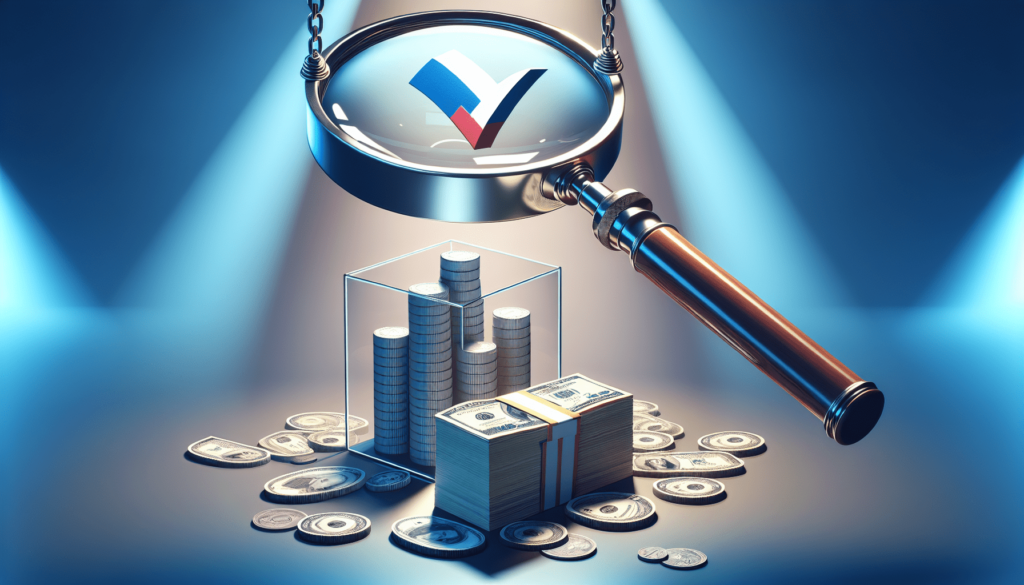Welcome to an informative article on how Citizens United has impacted campaign finance. Since the Supreme Court’s decision in the 2010 case, the landscape of political funding has been forever changed. Citizens United allowed corporations and unions to spend unlimited amounts of money in support of political candidates, leading to an influx of dark money and outside influence in elections. This decision has greatly shifted the balance of power in campaign finance, and its consequences continue to be felt in our political system today.
How Has Citizens United Affected Campaign Finance?
Have you ever wondered how the Citizens United case has impacted campaign finance in the United States? Let’s take a closer look at the effects of this landmark Supreme Court decision and how it has shaped the landscape of political spending in the country.
Understanding Citizens United
Citizens United v. Federal Election Commission was a 2010 Supreme Court case that made it illegal for the government to restrict independent political expenditures by corporations and unions. This decision fundamentally changed the way campaign finance is regulated in the United States.
Let’s break down the key points of the Citizens United case and its implications on campaign finance.
What Was the Citizens United Case About?
The Citizens United case centered around whether or not a nonprofit corporation could air a film critical of Hillary Clinton during the 2008 primary season. The Federal Election Commission (FEC) argued that this violated election laws that prohibited corporations from making independent expenditures on political candidates.
What Was the Supreme Court’s Decision?
In a 5-4 decision, the Supreme Court ruled in favor of Citizens United, stating that political spending is a form of protected speech under the First Amendment. This opened the floodgates for corporations and unions to spend unlimited amounts of money on political campaigns, leading to a significant increase in overall political spending.

Impact on Campaign Finance
The Citizens United decision has had far-reaching consequences for campaign finance in the United States. Let’s explore the primary ways in which this landmark case has shaped the political landscape.
Increased Super PAC Influence
One of the most significant outcomes of the Citizens United decision is the rise of Super PACs (Political Action Committees). These independent expenditure-only committees can raise and spend unlimited amounts of money to support or oppose political candidates. Super PACs have become a dominant force in elections, using their vast resources to influence the outcome of campaigns.
Influence of Dark Money
Another consequence of Citizens United is the proliferation of “dark money” in politics. Dark money refers to funds donated to nonprofit organizations that can engage in political spending without disclosing their donors. This has allowed corporations and wealthy individuals to pour massive amounts of money into elections without transparency, raising concerns about the influence of undisclosed donors on the political process.
Role of Big Money in Elections
Citizens United has also shifted the balance of power in elections towards those with vast financial resources. Candidates who can attract support from wealthy donors and Super PACs have a significant advantage over those who rely on grassroots fundraising efforts. This has led to concerns about the influence of big money in elections and the potential for wealthy individuals and corporations to sway policy decisions in their favor.

Campaign Finance Reform Efforts
In response to the impact of Citizens United on campaign finance, there have been various efforts to reform the system and reduce the influence of money in politics. Let’s explore some of the key reform initiatives that have been proposed or implemented in recent years.
Disclosure Requirements
One of the primary reform proposals is to increase transparency and disclosure requirements for political spending. By requiring candidates, campaigns, and outside groups to disclose their donors and expenditures, the public can have more visibility into who is funding political activities. This can help to hold accountable those who seek to influence elections through undisclosed contributions.
Public Financing of Campaigns
Another potential solution to the issue of money in politics is public financing of campaigns. By providing public funds to candidates who agree to abide by certain spending limits and disclosure rules, it can level the playing field and reduce the reliance on wealthy donors and special interest groups. Public financing has been implemented at the state and local levels with varying degrees of success.
Overturning Citizens United
Some advocacy groups and lawmakers have called for the overturning of the Citizens United decision through a constitutional amendment. By explicitly stating that corporations are not entitled to the same free speech protections as individuals and limiting the influence of money in politics, this could potentially restore balance to campaign finance regulation. However, a constitutional amendment is a challenging and lengthy process, requiring wide support from Congress and the states.

Conclusion
The Citizens United decision has had a profound impact on campaign finance in the United States, shaping the way elections are funded and influencing the outcomes of political races. While the effects of this landmark case have been significant, there are ongoing efforts to reform the system and reduce the influence of money in politics. By understanding the implications of Citizens United and advocating for campaign finance reform, we can work towards a more transparent and equitable political process.


Comments are closed